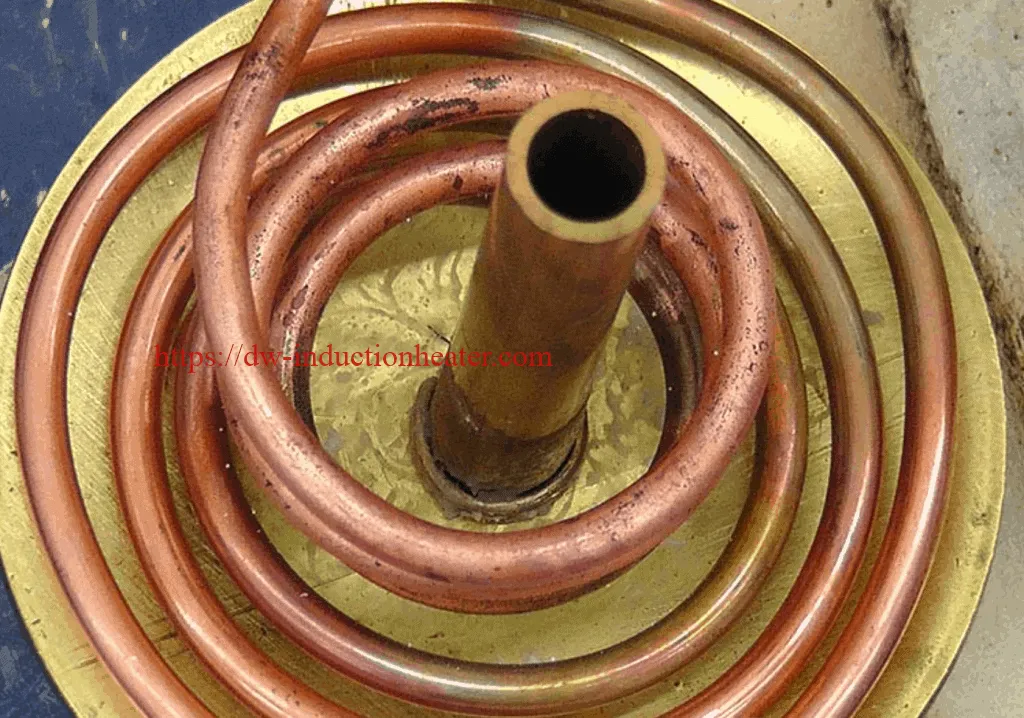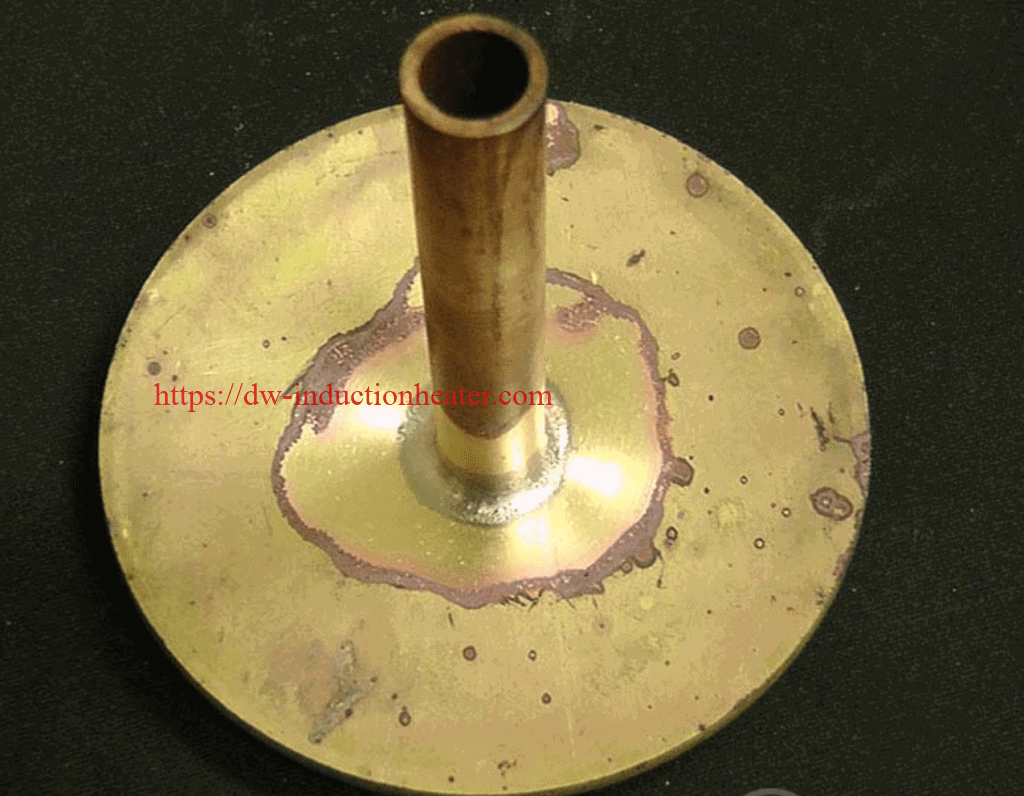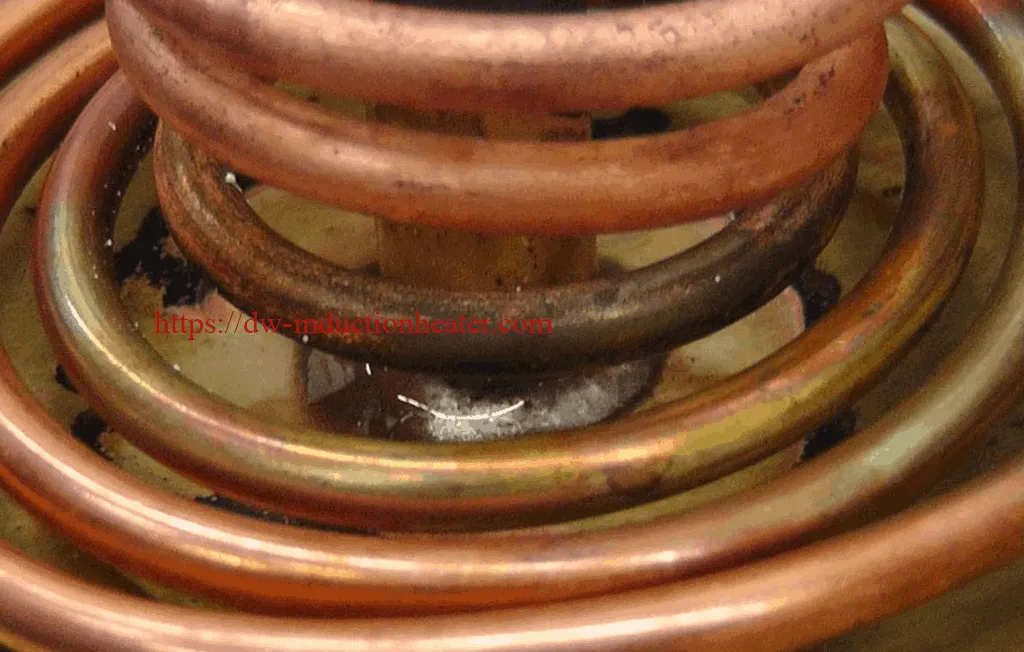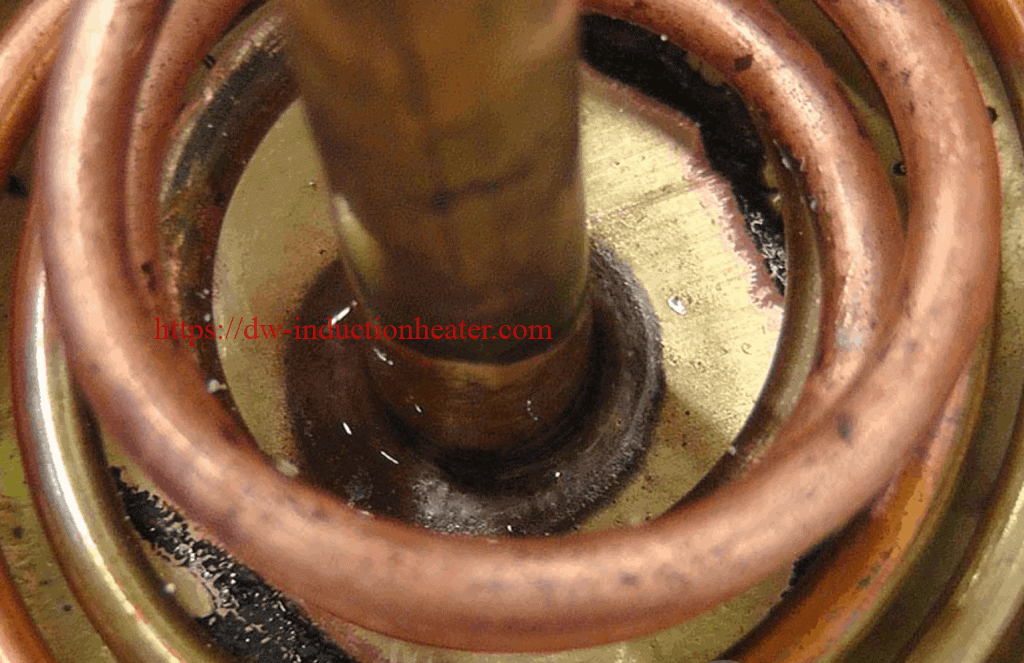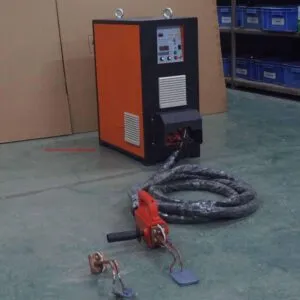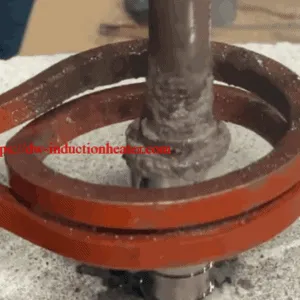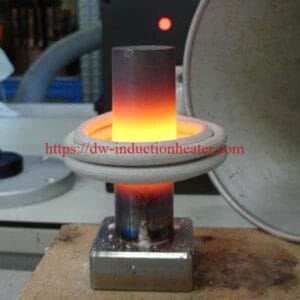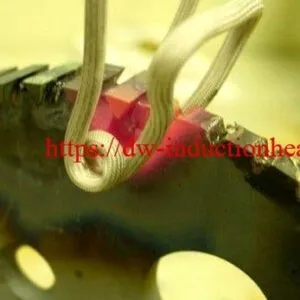-
1/4

-
2/4
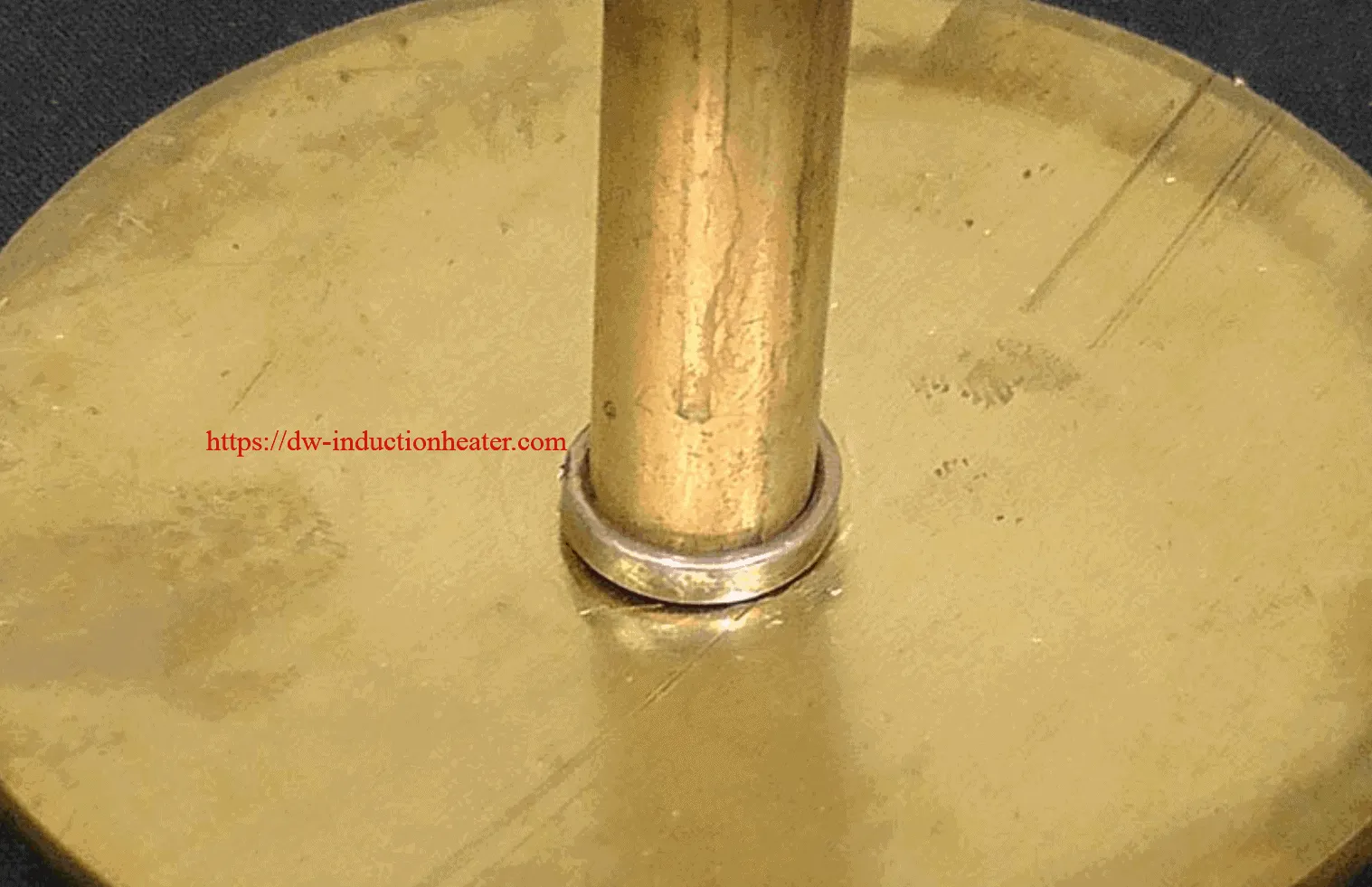
-
3/4

Induction Brazing Brass Tube to Brass Disk
Category: Induction Brazing
Tags: brass tube, brass tube to brass disk, brazing brass, brazing brass tube to brass, brazing brass tube to disk, buy induction brazing brass machine, high frequency brazing brass tube, induction brass tube, induction brazing brass pipe, induction brazing brass to disk, induction brazing machine price, tube
High Frequency Induction Brazing Brass Tube to Brass Disk Applications
Objective
Customer needs to silver solder a brass stem to a brass monument marker.
– Uses Silver Solder for Brazing Alloy, with Stay Silv flux
– Current process uses a torch, which takes 2-3 minutes per piece.
Equipment
DW-HF-15kw induction brazing heater
Materials
• Sample materials are both brass. Center tube – .500” (12.7mm) OD (0.0605” (1.537mm) wall thickness) x 2.9/3” (73.66mm) high
• Marker plate – 3.6” (91.44mm) OD x 0.125” (3.175mm) thick (nominal) slightly concave.
• Alloy – Sil Fos rod- 0.125” (3.175mm) x 0.050” (1.27mm)
• Flux
Key Parameters
Temperature: 1475-1500°F (801-815°C)
Power: 5 kW
Time: 45 seconds
Proces of induction brazing:
- To demonstrate elimination of “hand feeding” the alloy (common practice when torch brazing), we formed the customer’s alloy into a ring to tightly fit over the center post tube. This method affords several benefits in production operations: (a) Alloy in pre-formed rings provides a uniform amount for each cycle, resulting in uniform joints and wetting (b) operator control is replaces with uniform alloy rings – operators need no particular skills as with torch brazing. Pre-form alloy rings can be provided by the alloy supplier to tightly fit the tube OD.
- We fluxed the tube and mating area on the marker plate with the provided Stay Silv whit flux and moved the pre-formed alloy ring to the bottom of the tube to make contact both with the tube and the marker based at their interface position.
- A dual section/diameter coil was designed to uniformly heat the tube and plate to approximately 1500 0F at the interface of the parts – once temperature was to flow the alloy was reached, the pre-formed rings flowed around the tube and marker plated forming a complete braze filet. The apply was permitted to solidify, then the assembly was lowered out of the coil and subjected to a water bath to remove the residual flux residue.
Benefits of induction brazing:
- Precise control of the time and temperature
- Power on demand with rapid heat cycles
- Repeatable process, not operator dependent
- Safe heating with no open flames
- Energy efficient heating

